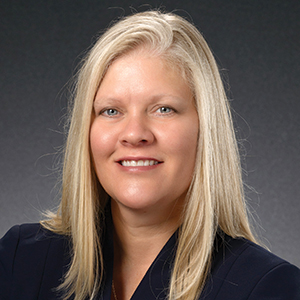Accounting departments increasingly have found that their policies, procedures and process documentation are being neglected.
“COVID threw everything up in the air,” says Tami Stevens, Senior Manager, Accounting Advisory, at Clark Schaefer Consulting. “Processes were disrupted, people went remote, and others decided to retire. Many accounting departments are still somewhat frazzled by these changes. The result is that their policies, procedures and process documentation are often outdated or incomplete.”
As a consequence, it’s difficult for new employees to get the full picture, and workflows are disrupted.
Smart Business spoke with Stevens about issues arising from gaps in process documentation.
What’s happening in accounting departments?
As staff turnover occurs, those outgoing employees take bits of information with them. If that information was not documented, it creates gaps in the department’s policies, procedures and processes. While the remaining team may attempt to capture everything before someone leaves, they don’t always ask the right questions to get all of the information that they need. And once they lose that knowledge, it’s gone. For incoming staff, it can feel like they’re putting together a puzzle while pieces are missing.
Having gaps in accounting processes can impact other teams or departments within the organization. Information coming from accounting might be delayed or omitted because nobody knew that something had to be done before handing it off. That can cause delays across the organization because they need to go back and run a report or find missing information.
Complicating the issue is that new standards have been introduced that impact processes. Current Expected Credit Losses (CECL) methodology and Accounting Standards Codification 824 both need to be built into departmental processes; otherwise significant errors could be made.
How should they address gaps in documentation?
Accounting departments would benefit from taking a proactive approach to process documentation before that knowledge walks out the door. Review the current documentation and, if it’s a large number of documents, break it down across the team of individuals who are completing the functions to review, revise and fill in any missing information. The review should be all encompassing. Be sure to include tasks that are completed on a quarterly, semi-annual, or annual basis.
Third-party providers can also be brought in to review departmental policies, procedures and process documents. These third parties have broad experience from working with accounting departments across industries. The third party will look at the policies, procedures and process documentation, and work with an organization to update them. It will also provide a report that lists potential control gaps and recommendations for improved process efficiency.
Bringing in outside help for a review can be significant to departments already feeling the pressure of having to fill a gap where someone has left. It reduces the amount of effort they need to put into reviewing and identifying the changes to essentially a one-hour interview and then a review of the final documentation to make sure everything was captured completely and accurately. This could save days’ worth of effort, ensure the project doesn’t stall and relieves a lot of stress from the team. Third-party providers also know the questions to ask to make sure an entire process, with all of its nuances, is documented.
How can departments prevent gaps from occurring?
It’s important that organizations regularly review their policies, procedures and process documentation, rather than reactively review them when it’s clear that gaps are causing disruptions. This structure plays a pivotal role in establishing the clarity and consistency within an accounting department, and ensures it’s working in compliance of the laws, industry regulations and best practices.
Regular reviews, whether internal or by an outside party, can prevent disruptions before they happen. ●
INSIGHTS Accounting is brought to you by Clark Schaefer Hackett

